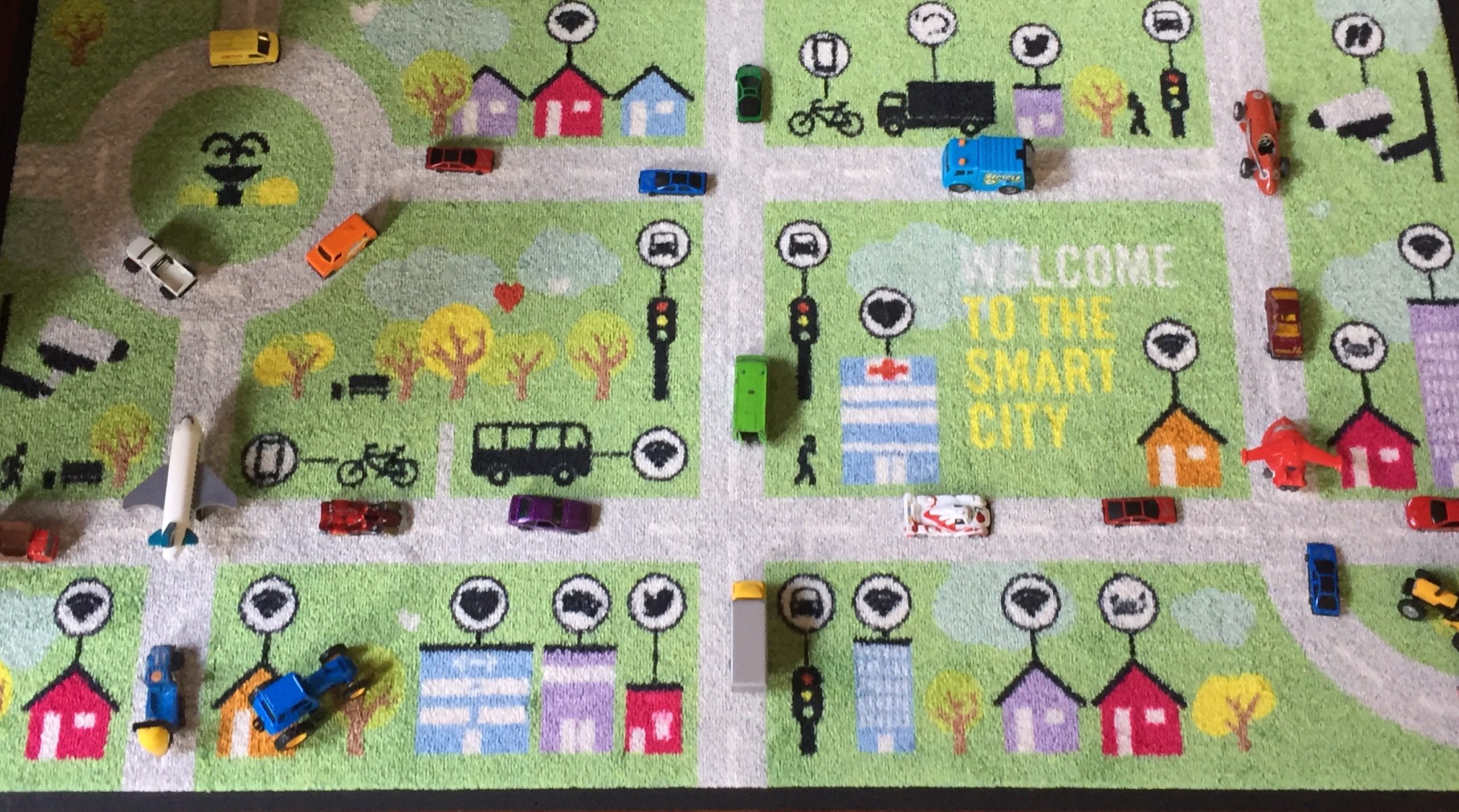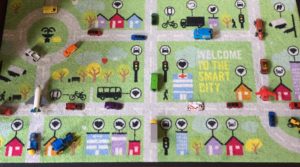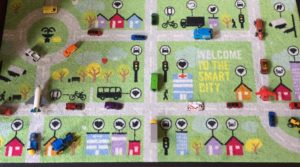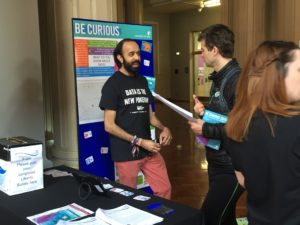Be Curious is an annual public engagement event held by the University of Leeds, to showcase the breadth of research at the University, through a variety of free activities for children and their families to enjoy. With this year’s theme, ‘Brighter Futures’ firmly in our minds, the first cohort of Leeds CDT students put our heads together to come up with an exciting concept for the LIDA stand, to represent our PhD research.
With more and more of us living in cities across the world, we themed our activities around the contribution of data to improving our daily lives and the environment we live in. And so, with the help of some wonderful designers, our smart cities play mat came to life!
On Saturday 30 March, Parkinson Court bustled with curious minds, keen to enjoy the feast of activities on display by research groups from across the University.
At the LIDA stand, children had a great time playing with toy cars as they explored the smart cities play mat; matching cards to the symbols on the mat to find all the different data sources around the city and learning how they could contribute towards building brighter futures. From hospitals to supermarkets, fitness trackers and public transport, we generate huge amounts of data every day. The smart cities concept gave us an opportunity to discuss how, when used responsibly, data can provide insights which could lead to improvements in health, public safety, diet and physical activity, efficiency of services, and so much more! It was really interesting to engage with people on the topic of ethical data usage and to understand their concerns, which we will carry forwards in our research conduct. We also gathered opinions via LIDA’s LifeInfo Survey, which explores attitudes towards the possible linkage of behavioural data with individual health records in the future.
As well as learning lots of fun data facts, members of the public also had the opportunity to contribute to some data visualisations. A sticker map showing transport modes and distance travelled to attend Be Curious was simple but effective, quickly revealing a pattern of car use among those living further from the University. While anonymous contributions to an interactive word cloud revealed that the benefits of data to society came across most strongly for health.
With our research spanning urban footfall, geodemographics, physical activity, online retail and diet, it was a challenge to pull such a diverse portfolio of projects together into a single concept. But the smart cities idea proved to be a great success and sparked a lot of interesting conversations at what was, for many of us, our first public engagement event.



